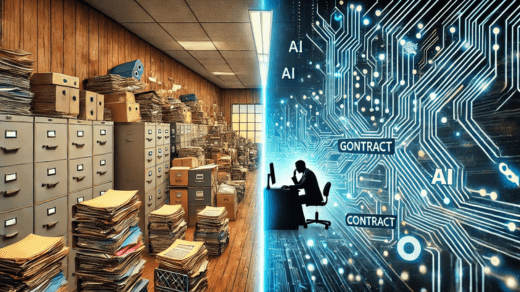A close look at GovGPT and its impact on AI in government contracting reveals transformative potential in how businesses and government agencies manage and execute contracts. Here’s an exploration of the key areas where AI, specifically GovGPT, can influence government contracting:
**1. Efficiency and Automation
- Proposal Generation: AI can automate the creation of proposals by generating drafts based on input data and historical templates. This reduces the time spent on manual drafting and ensures consistency in submissions.
- Document Management: Automated systems handle the organization, storage, and retrieval of contract documents, streamlining administrative tasks and reducing paperwork.
**2. Compliance and Regulation
- Regulation Tracking: AI can monitor changes in regulations and compliance requirements, providing real-time updates and ensuring that all contractual obligations are met.
- Automated Compliance Checks: Continuous verification of contract terms and conditions against regulatory standards helps prevent compliance issues and costly penalties.
**3. Data-Driven Decision Making
- Performance Analytics: AI analyzes data from past contracts to provide insights into performance trends, identifying areas for improvement and optimizing future proposals.
- Opportunity Identification: AI-driven tools can filter and analyze SAM.gov and other databases to pinpoint relevant contracting opportunities based on specific criteria.
**4. Risk Management
- Predictive Analytics: AI can forecast potential risks and issues related to contract performance or compliance, allowing businesses to address problems proactively.
- Risk Assessment: AI evaluates contract terms and project scope to identify potential pitfalls and suggests mitigation strategies.
**5. Enhanced Communication
- Virtual Assistants: AI-powered chatbots and virtual assistants facilitate communication between businesses and government agencies, handling routine queries and providing information quickly.
- Centralized Communication Platforms: AI integrates various communication channels into a single platform, improving coordination and reducing miscommunication.
**6. Cost Efficiency
- Reduced Administrative Costs: By automating repetitive tasks and document management, AI reduces administrative overhead and associated costs.
- Resource Optimization: AI helps allocate resources more effectively by identifying high-value opportunities and streamlining processes.
**7. Proposal Quality and Competitiveness
- AI Recommendations: AI provides suggestions for improving proposal content based on successful submissions and industry benchmarks, enhancing the competitiveness of bids.
- Error Reduction: Automated checks and editing tools help ensure proposals are free from errors and inconsistencies.
**8. Scalability
- Adaptable Solutions: AI can scale with the growth of the business, handling increasing volumes of contracts and bids without a proportional increase in manual effort.
- Customizable Features: AI solutions can be tailored to fit the specific needs and complexities of different contracting environments.
**9. Continuous Improvement
- Learning Algorithms: AI systems continuously learn from new data and feedback, improving their accuracy and effectiveness over time.
- Process Optimization: Regular analysis of performance data helps refine and enhance contracting processes, driving continuous improvement.
**10. Strategic Insights
- Market Intelligence: AI analyzes market trends and competitor activities, providing strategic insights that can inform bidding strategies and business development efforts.
- Feedback Analysis: AI processes feedback from past contracts to identify strengths and weaknesses, guiding future contract strategies.
Impact Summary
The integration of GovGPT into AI in government contracting processes offers significant benefits, including improved efficiency, enhanced compliance, data-driven decision-making, better risk management, and cost savings. By leveraging AI, businesses can streamline their contracting operations, enhance proposal quality, and gain a competitive edge in securing government contracts.
